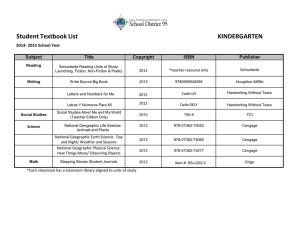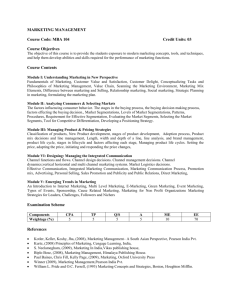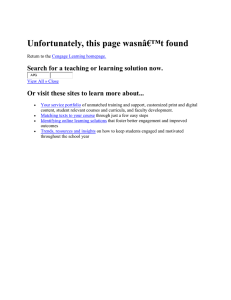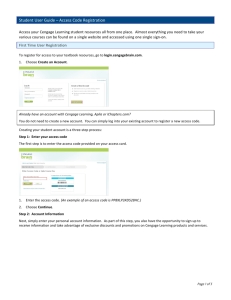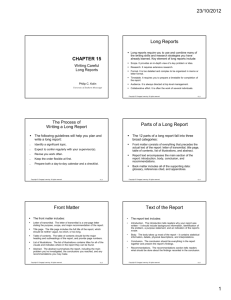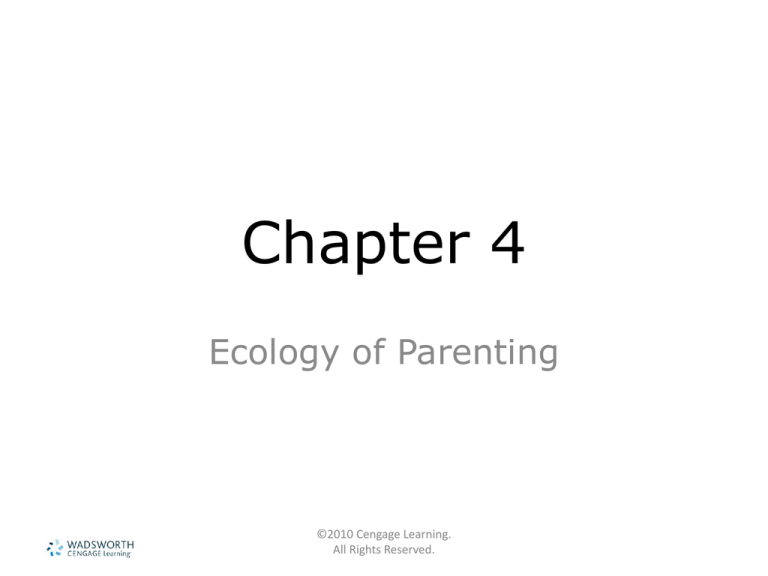
Chapter 4
Ecology of Parenting
©2010 Cengage Learning.
All Rights Reserved.
You are the bows from which
your children as living arrows
are sent forth.
Kahlil Gilbran
©2010 Cengage Learning.
All Rights Reserved.
Macrosystem
Influences
©2010 Cengage Learning.
All Rights Reserved.
Macrosystem
Influences
• Political ideology
– Theories pertaining to government
• Socioeconomic status
• Parental occupation
• Culture and religion
©2010 Cengage Learning.
All Rights Reserved.
Cooperative/
Interdependent
Hierarchal authority
roles
Nonverbal cues are
important
Vary in display of
emotion
Children obey and
imitate
Vary in emphasis on
specific skills
©2010 Cengage Learning.
All Rights Reserved.
Competitive/
Independent
Value achieved
authority
Direct
communication style
Vary in display of
emotion
Value preventative
discipline
Children encouraged
to make own
decisions
©2010 Cengage Learning.
All Rights Reserved.
Chronosystem
Influences
©2010 Cengage Learning.
All Rights Reserved.
Historical Trends
• Eighteenth Century
– Tabula rasa
• The idea that the mind is a blank
slate before impressions are recorded
on it by experience
• Twentieth Century
– Behaviorism
• The theory that observed behavior
provides the only valid data
©2010 Cengage Learning.
All Rights Reserved.
Family Dynamics
• Children’s Characteristics
– Age and cognitive development
– Temperament
• Easy, difficult, slow-to-warm-up
– Gender
– Presence of a disability
©2010 Cengage Learning.
All Rights Reserved.
Goodness-of-fit
• The accommodation of parenting
styles to children’s temperaments
©2010 Cengage Learning.
All Rights Reserved.
Family Dynamics
• Family Characteristics
– Size
– Configuration
– Parents’ life stage
– Marital quality
– Ability to cope with stress
©2010 Cengage Learning.
All Rights Reserved.
Parenting Styles
©2010 Cengage Learning.
All Rights Reserved.
Microsystem
Influences
• Attachment
• Parenting style
• Development of competence
– Mothers of competent and incompetent
children vary in terms of their
interactions with their children.
©2010 Cengage Learning.
All Rights Reserved.
Terms
• Prosocial behavior
– Behavior that benefits other people,
such as altruism, sharing, and
cooperation
• Competence
– Behavior that is socially responsible,
independent, friendly, cooperative,
dominant, achievement-oriented, and
purposeful
©2010 Cengage Learning.
All Rights Reserved.
©2010 Cengage Learning.
All Rights Reserved.
Mesosystem Influences
• School
– The relationship between families and
schools is a resource for parenting.
• Community
– The community can be a source of
support in helping parents cope with
stress.
©2010 Cengage Learning.
All Rights Reserved.
Appropriate Parenting
Practices
©2010 Cengage Learning.
All Rights Reserved.
Parenting Practices
• Developmental Appropriateness
– Involves using knowledge of children’s
growth patterns and individual
differences
• Guidance
– Direction, demonstration, supervision,
and influence
©2010 Cengage Learning.
All Rights Reserved.
Inappropriate
Parenting Practices
©2010 Cengage Learning.
All Rights Reserved.
Terms
• Abuse
– Maltreatment that includes physical
abuse, sexual abuse, and psychological
or emotional abuse
• Neglect
– Maltreatment involving abandonment,
lack of supervision, improper feeding,
lack of adequate medical or dental care,
inappropriate dress, uncleanliness
©2010 Cengage Learning.
All Rights Reserved.
Physical Abuse
• Maltreatment involving deliberate
harm to the child’s body
©2010 Cengage Learning.
All Rights Reserved.
Sexual Abuse
• Maltreatment in which a person
forces, tricks, or threatens a child in
order to have sexual contact with
him or her
©2010 Cengage Learning.
All Rights Reserved.
Psychological or Emotional
Abuse
• Maltreatment involving a destructive
pattern of continual attack by an
adult on a child’s development of self
and social competence, including
rejecting, isolating, terrorizing,
ignoring, and corrupting
©2010 Cengage Learning.
All Rights Reserved.
Correlates/
Consequences
• Many abusers have a family history
of maltreatment.
• Certain physical and psychological
characteristics may make a child
more prone to maltreatment.
• Families who are abusive tend to be
isolated from their communities.
©2010 Cengage Learning.
All Rights Reserved.

